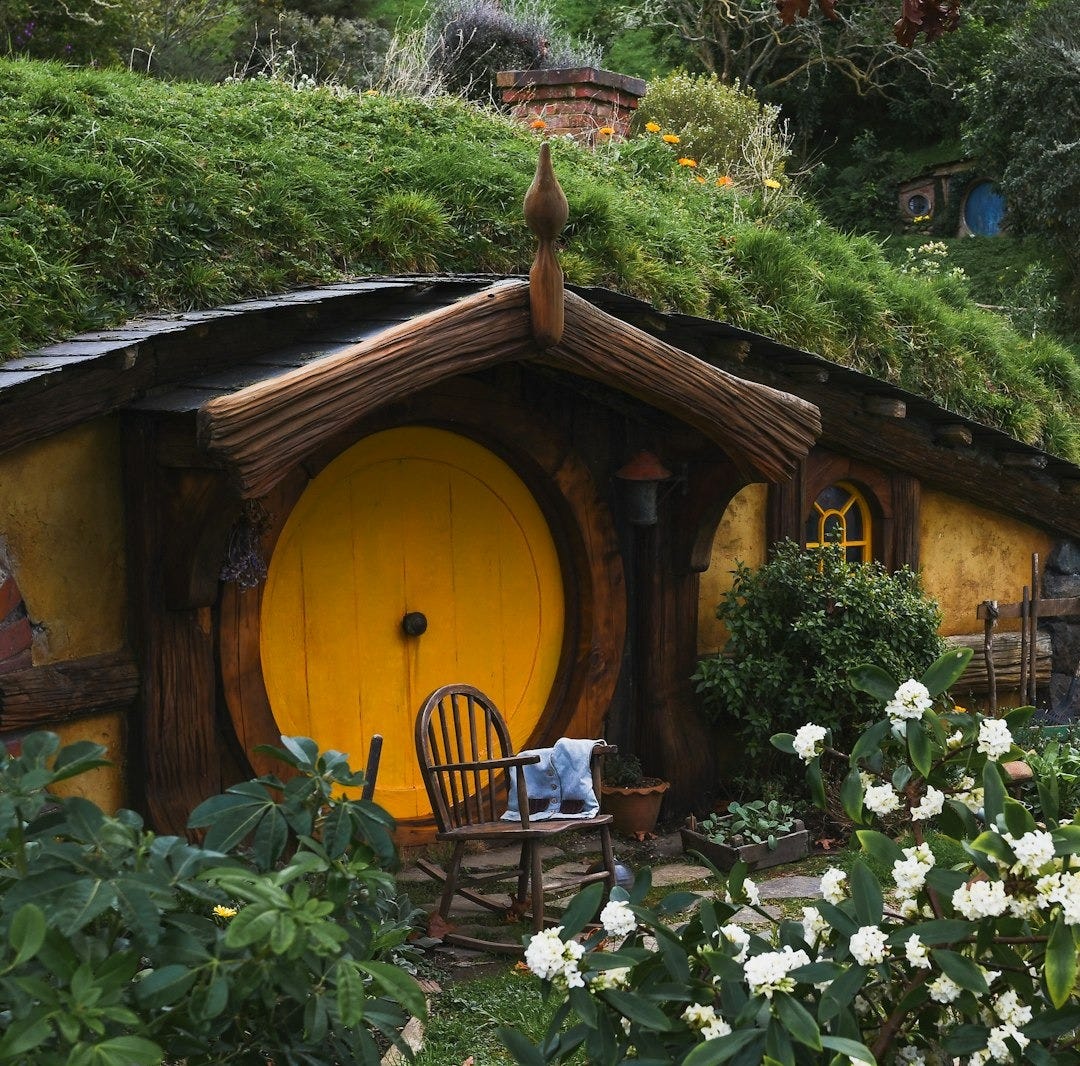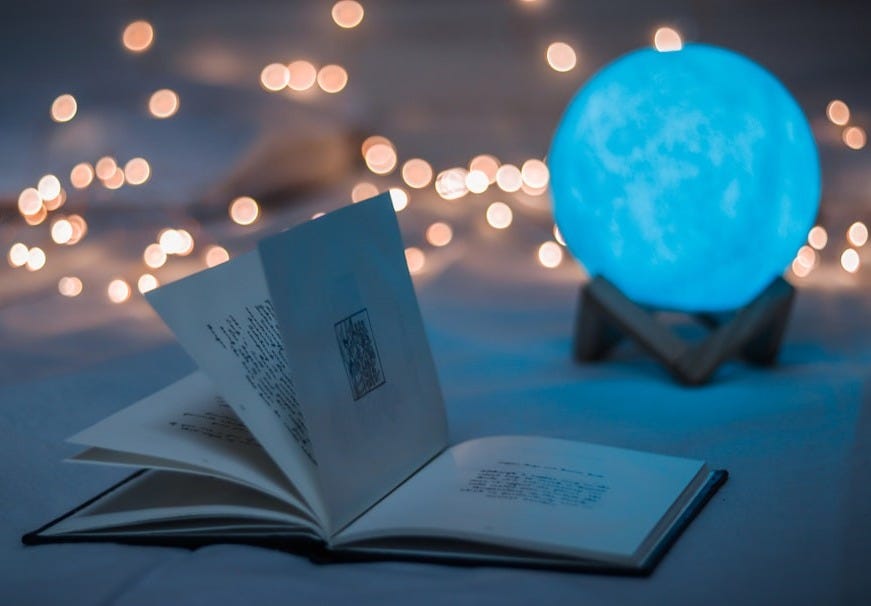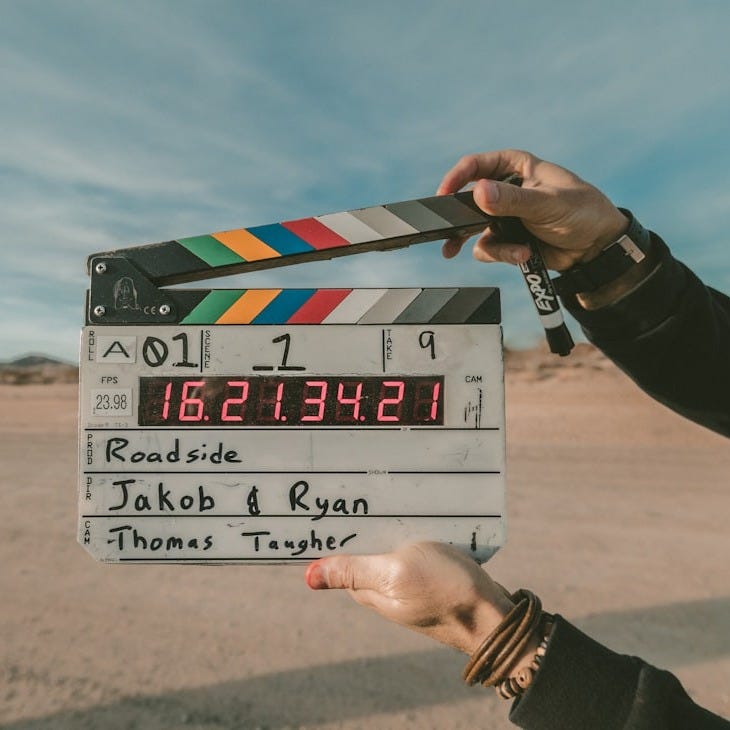The magic of reading
Why great books & audiobooks will always trump great movies

I remember seeing Peter Jackson’s ‘Lord of the Rings’ in a Gold Class cinema when it was released in 2001. I reckon that’s what special movie rooms like that are for - movies with amazing landscapes, characters larger than life, and plenty of action.
Unfortunately, I also remember leaving somewhat disappointed.
Sure, it was a fantastic production. Jackson did a wonderful job at turning his vision into a movie that brought the story to life visually.
However, it was his version.
Despite the amazing effects, brilliant acting (mostly), and fantastic audio, I found the movie was too small. And I’m not referring to all the bits it skipped from Tolkien’s hefty novel. It may sound strange, but this movie about magic was missing a whole lot of magic to me.
Now, let me say that I love a good movie. And I am so glad my wife feels the same way. Snuggling together while watching a great thriller, drama or rom-com at home on a rainy day or enjoying a well-produced, big-screen action or sci-fi/fantasy adventure (like LotR) at the local cinema are two of our favourite things to do.
However, anyone who enjoys reading fiction will agree with me. There are too many movies that simply “whelm” (or underwhelm) when watched after reading the book.
And it’s not just that a movie can only convey so much in the ninety or so minutes it enables you to escape the world around. The most significant problem every movie producer will face is that a movie can never match the magic you will only find in a well-written book/audiobook.

So, what is this magic I’m referring to?
When you understand that, you will comprehend why movies never can & never will trump a well-written fictional story.
One of the things that mark humans out from the rest of Planet Earth is that we have imaginations, the power to envision and then create things that don’t yet exist. Sure, dogs dream (I suspect mainly about lands filled with treats where they can run free and not be bullied by those dogs whose oft thin-skinned owners turn them into aggressive mongrels). But humans alone can read or hear something and be inspired to see a vision of what can be.
That’s why I love reading fiction.
Of course, non-fiction can still be great. I try to read a motivational non-fiction story once a month. Blocking out all other sensory influences and keeping notes while I read enables me to grow as a person in many ways.
However, a great fiction adventure stimulates me in ways nothing else can if the storyteller does what the best of them do - tell just enough to allow my imagination to create the movie in my head.
I think that is the hardest part of writing fiction - not over-describing so there is no need for readers to imagine, yet not leaving them with a blank canvas that makes it hard to see anything clearly.
And when a novel is written well, ten people reading the same story will see ten different movies in their mind’s eye. All ten movies tell the same story. But each reader’s personal filter will change how it looks and feels.
And that is the magic of reading - this amazing, incredible ability that lives inside of you - the ability to “see” something that does not exist per se.

What I’ve loved most about writing stories so far has been the first edit. For all four novels I’ve completed and edited (and re-edited), it was that first telling that hooked me.
In all four cases, I’ve wondered if I’ve told the story as well as I could. And that is because, for all four stories, I write many of the chapters while watching the movie in my head. As I see it play out, I try to capture what I see in words that will help my readers understand the truth of the story in a way that each reader can visualise in their world.
I don't want my readers to be lazy in their mind’s eye. As a storyteller, what I want above everything else is to inspire my readers to dream & visualise stories. As you learn to “see” stories, you will hopefully learn to grow your own ability to dream. And that is how anyone can change the world around them.
That’s the problem with living in a world of video. You only see someone else’s vision. And if you only live with that, you can become insensitive to your own ability to dream.
Everyone knows that when one sense goes down, the others step up.
For example, when someone starts losing their vision, their auditory and olfactory senses improve in an attempt to compensate.
Yet, they never can.
So, please, promise yourself to start reading a printed book you can hold (or an audio book you can hear) in a place that silences the world’s distractions.
And go for some fiction, something that will enable & empower you to dream about things that don’t exist.
Yet.
Because you might be the one who will change that.
But you need to remember how to dream.
And, then, go live it. Make it real. Fight for it.
And … change … your … world!


I think this is similar to what we were talking about yesterday - having a group of people listen to the same piece of music and then re-create what they 'saw', 'sensed' etc (in the music) using visual art. The example I gave was using plain papers and textures to cut or tear to create a collage that represented the emotion that the music evoked in the listener. Encouraging "creativity" is powerful :)
I love this insight Mike. It's true, I've never seen a movie that lived up to the imagination I read. How can the Tales of Narnia ever live up to the movie-stories I read when I was 8 years old or ones I read for the 2nd 3rd or 4th time
I would dearly love to read The Never-ending Story. The movie as screened enthralled me. I wonder what mine would be like.